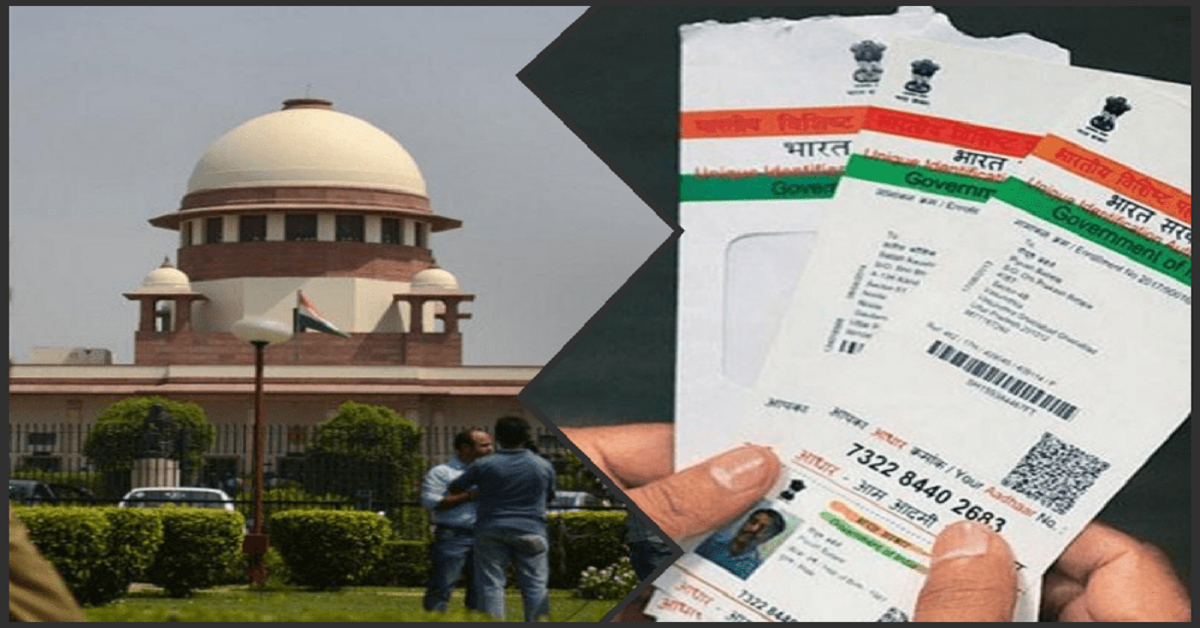
The Aadhaar case had been embroiled in a legal battle in the Supreme Court for so long. Head of its hearing today, let’s look at 10 points of the case.
The Supreme Court is slated to resume hearing pleas against legal validity of Aadhaar on Wednesday. While the petitioners, in the last hearing, had asserted that Aadhaar linking was “death of civil rights”, the SC on Tuesday posed some questions to their lawyer. The 5-judge Constitution bench, headed by Chief Justice of India Dipak Misra, questioned how the unique identification number would make any difference, whereas the petitioners said that the system was faulty since the beginning.
Here’s what’s in store in Supreme Court in 10 points:
- The Supreme Court bench has asked: Our personal data is anyway with the private entities, so does the interpolation of Aadhaar make any difference?
2. According to the bench, which comprises Justices A K Sikri, A M Khanwilkar, D Y Chandrachud and Ashok Bhushan, apart from CJI Misra, citizens are living in a networked world now and the data is already available with private entities.
3. The top court has also observed that the biometric information, taken for Aadhaar enrolment, was deposited in a central database and that citizens are required to only give their 12-digit unique identification number.
4. Senior advocate Shyam Divan, who is appearing for some of the petitioners, pointed that private entities were part of Aadhaar enrolment process, and the data collected could be completely compromised.
5. Around 49,000 private agencies, involved in the process of enrolment for Aadhaar, were blacklisted last year by the government, which has raised a serious question mark over the sanctity of the data, including biometrics of citizens, collected by them, said Divan.
READ ALSO: Supreme Court to resume hearing Aadhaar case today
6. Divan said that an “enormous electronic mesh” is being created where the whole profile of an individual was collected, as he referred to the collection of demographic and biometric data like iris and fingerprints of citizens.
7. According to the petitioners, it is a complete surveillance state and surveillance society, and that biometrics of the person changes with time.
8. The petitioners have also argued that “if one is entitled to benefits, subsidies, scholarships or pensions under the Constitution, then Aadhaar cannot be made mandatory for them”.
9. One of the other arguments by the petitioners is: The state cannot compel its citizens to give personal information, that too to a private company, as it violated their fundamental rights.
10. The apex court had on December 15 last year extended till March 31 the deadline for mandatory linking of Aadhaar with various services and welfare schemes of all ministries and departments of the Centre, states, and union territories.

Post Your Comments